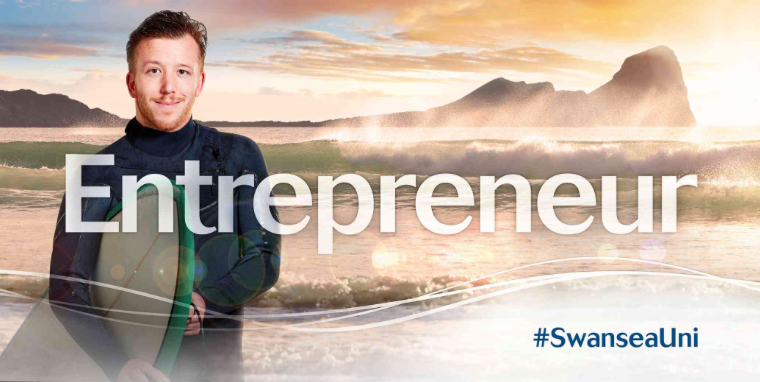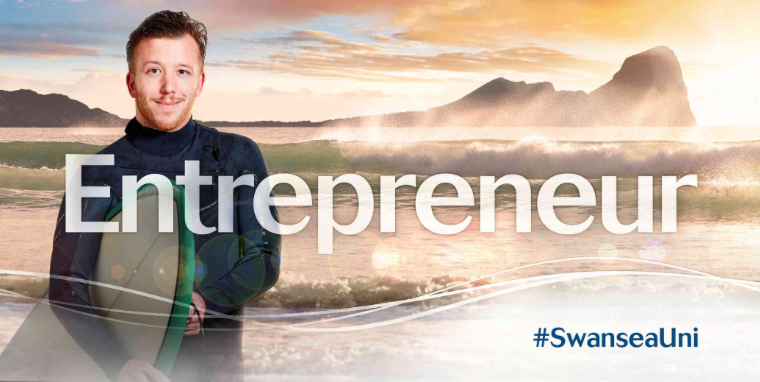Thanks for visiting 24hourlondon's editorial. Download the app for #supportlocal offers and promotions.
An awesome guide to business accelerators
By Emma Hartley - Sat, 19th Aug 2017

The Guardian's small business network published a piece by me earlier this week: yay! Since we've just moved our blog off Blogger.com and on to here – thanks Dean – this is me testing out our new functionality and posting the pre-subbed version of the article, which is shorter (unusually) and has more juicy detail about the eco-entrepreneur who got ripped off by the mayor of London's friend but lived to tell the tale...

The poster
opposite me on the tube contained the word “entrepreneur” in large eye-catching
letters and was accompanied by a picture of a mainly naked guy carrying a
surfboard. It was an ad for a university course and I was on my way to the first
day of a business incubator programme for my startup. Damn, I thought. I’ve
forgotten my surfboard.
My cofounder, Dean Jenkins, and I applied to one incubator with our business, 24hourlondon, to which we were accepted, and one accelerator, which said: make some changes and come back to us in a couple of months. Since the accelerator offers a five-figure sum for equity this was a goodish outcome. The incubator will give us a chance to refine our business plan, recruit some more people – volunteers at this stage: we’re looking for tech and marketing co-founders – and show that we’ve got what it takes to scale. Perhaps the accelerator will then provide the tools to do so.
As a woman in her mid-forties who has spent the last 20 years at national broadsheet newspapers, I’m not typical of the incubator’s cohort: the rest are male and mostly in their 20s or early 30s, though the accelerator’s interviewees were more varied. Theoretically 24hourlondon’s track record – Dean has taken a medtech company to exit among many other things – should confer an advantage, but who knows whether we have the alchemy it takes? For instance, I recently heard an after-dinner speech in which a venture capitalist (VC) told a room that was about 50/50 male and female founders that 95% of the VC money in London goes to men, advising the women in the room to get themselves a male cofounder. The irony of telling female founders to find some male window-dressing seemed to elude him.
Is that 95% stat is correct? It has the baleful feel of truthiness. But technology startups are surely capitalism’s modern wild west – and where something is little-understood there is always room for charlatans and bullshit. For example, I was recently taken to a conference in central London that was advertised as being for budding entrepreneurs. In fact it consisted of a young man on a stage telling a room full of several hundred whooping people that it was OK to be themselves, that his father didn’t love him and that he could relieve them of more money to take part in his “academy”. It seems to me that there is a sellers’ market for entrepreneurship packaged as a panacea for unhappiness. Work for yourself, the theory goes. Don’t let those other buggers grind you down.
This is wishful thinking: building a business involves building relationships with your cofounders, with your customers and with other businesses. But as with all clichés, those about entrepreneurship also contain a grain of truth. Charismatic founder? Well, you need to be able to attract other people to work with you. But I suspect that the charisma of a good idea works wonders.
For those of us who know that we don’t know everything, the relatively recent growth of the accelerator and incubator ecosystem is a godsend. In fact, it was its existence that partly made me think we should give the business another go (the beginning of the 24-hour tube was another). We originally built 24hourlondon in 2010, tried to market it for two years but kept finding ourselves talking to people who didn’t own smartphones and couldn’t see the value of an app to their own businesses. We were just too early, I think. Five years on, the market is more mature and most tech problems now have accessible tech solutions, which include accelerators and incubators: I see our business model as being like a jigsaw puzzle for which we do not have all the pieces and a good accelerator is where I’m most likely to find the missing ones.
Undeniably tech startups exist in a “space” where the word “awesome” is never more than a value-judgment away. But I am coming to see this more as a generational trope and a way of demonstrating supportiveness in a highly uncertain world rather than just as a cliché. So far – in less than two weeks at the incubator and after a two-day intensive interview at the accelerator – there have been some brilliantly instructive stories, gossip and advice.
There was the young eco-entrepreneur who won a competition at City Hall and was given a mentor by the then-mayor Boris Johnson who literally stole his idea. So far, one might think, so predictable. The instructive bit, though, was that the eco-entrepreneur went to a lawyer, thinking he would sue the mentor, but was told that anyone who had to steal someone else’s idea wouldn’t have the chops to build a business and not to waste his money. The lawyer – what a mensch – has turned out to be right.
And then there was the female founder of the now-highly-successful video business whose trouble finding a co-founder quickly to please an investor led her to a recruitment agency and a guy who really only wanted to work nine-to-five: she had to buy the cofounder out a year later.
Wish us luck? It would be awesome.